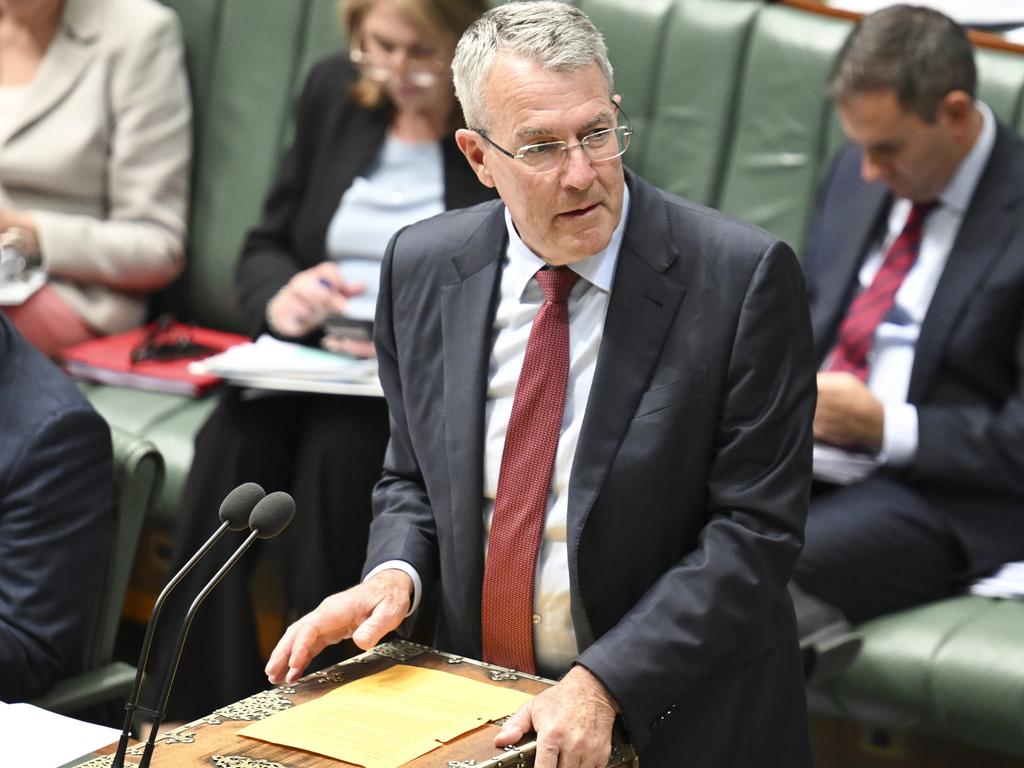Labor government introduces new law to block legal challenge to AN0M sting
New laws will prevent any legal challenge to one of Australia’s most successful covert stings in organised crime using the encrypted AN0M application.

Labor has introduced laws to thwart any legal challenge by people charged in an Australian Federal Police sting using the encrypted AN0M application.
The covert investigation – known as Operation Ironside – was regarded as one of the greatest stings in law enforcement this century after it nabbed 800 alleged organised crime figures across the globe.
It involved the AFP developing the capability to collect communications over the AN0M application to allow covert surveillance of alleged organised crime networks.
But questions have been raised about the operation’s legality, specifically how surveillance evidence was obtained.
Attorney-General Mark Dreyfus on Thursday introduced the Surveillance Legislation (Confirmation of Application) Bill to prevent any further legal challenge to Operation Ironside, despite the granting of special leave to the High Court for an appeal by people charged in South Australia as a result of the sting.

The accompanying memorandum explains that the bill addresses the legal challenge to whether the evidence that led hundreds of people being charged was lawfully obtained.
“The bill is targeted in its scope and will only apply to information or records obtained under a specified range of warrants issued in connection with Operation Ironside,” it states.
As such, the bill will “clarify” that evidence obtained under 10 specified warrants issued to the AFP between 2018 and 2021 was not intercepted while passing over a telecommunications system and was lawfully obtained under those warrants.
“Challenges to evidence obtained from AN0M have arisen in several proceedings and may continue to be raised in future proceedings,” the explanatory memorandum said.
“The bill would not alter the existing law, or the operation of the SD [Surveillance Devices] Act, Crimes Act or TIA [Telecommunications Interception and Access] Act, and so would not alter the circumstances in which the AFP or other agencies may collect information using powers provided for by those acts.
“Rather, the bill would clarify that information or records obtained by the AFP under relevant warrants was obtained in a manner that was consistent with the Parliament’s intent.”
The bill is aimed at adopting the same position as South Australia’s Supreme Court and Court of Appeal, although it is the decision of the latter of those courts that will be heard in the High Court.
More Coverage
Originally published as Labor government introduces new law to block legal challenge to AN0M sting








